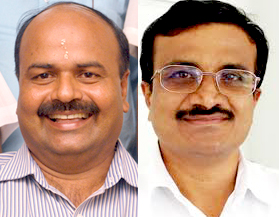
Mangalore, March 28: A showdown for the post of Dakshina Kannada Zilla Kannada Sahitya Parishat appears imminent with Pradeep Kumar Kalkura and Sarvotham Anchan filing nominations on Wednesday, the last day to file nomination for the election to be held on April 29.
Kalkura, who has been the unanimous choice in the last two terms, appears to be facing a stiff contest from Mr. Anchan, the former president of the Mangalore Taluk Kannada Sahitya Paarishat and industrialist. Both Kalkura and Anchan filed their nominations at the tahsildar's office accompanied by their supporters.
Mr. Kalkura was accompanied by the president of the Karnataka Yakshagana Bayalata Academy Kumble Sunder Rao and a host of others, including the office-bearers of district and taluk units of the literary body.
The prominent face in the Anchan camp was Harikrishna Punaroor, the former president of the State Kannada Sahitya Parishat. Former secretary of the district KSP Ganesh Amin Sankamar, Mahesh Nayak, Principal of St. Aloysius P.U. College Edward D'Silva, among others, were present.
Speaking after filing the nomination, Mr. Punaroor said it was time to bring some change at the KSP. “The members cutting across divisions of caste and religion should support Anchan,” he said.
At a consultation meeting a couple of weaks ago, Mr. Punaroor had declared that an impression was gaining ground that the post is reserved for Brahimins since the post had been held invariably by a Brahmin in the last several years.
Mr. Kalkura, being a protégé of Mr. Punaroor, was expected to stay away from the contest this time, but decided to throw his hat in the ring apparently at the last minute.
“I had to bow to the pressures of my well-wishers including the presidents of all the taluk KSP units. There is no question of caste here. I have been conducting the activities of the literary body without giving any consideration to caste or creed,” Mr. Kalkura told coastaldigest.com.
“A host of my ex-colleagues in the literary body wanted me to contest. Pople like Srinath, Subrahmanya, Vijayalakshmi Shetty and Taltaje Vasanth Kumar have persuaded me to file the nomination,” he said.
He also maintained that he did not like the idea of election for the president of a literary body and would rather prefer to be elected as a consensus candidate. “But in a democracy, election is also a way to elect the representative. The decision to field a candidate by Harikrishna Punaroor was not taken through proper consultation. I have enormous respect for him because he had been my mentor all these years. But enough efforts were not made to zero in on a consensus candidate,” he added.
When asked if there would be a unanimous choice with either of them withdrawing nomination, Mr. Kalkura did not give a direct answer. “We will wait. There is still time left,” he said.
Mangalore Taluk Tahsildar Ravichandra Nayak is the Nodal officer for the election. There are 1,932 eligible voters from five taluks namely Mangalore, Bantwal, Puttur, Sullia and Belthangady. Only those who are the members of the Parishat for the last three years are eligible to vote during the election. The nominations will be scrutinised on March 31 at the Mangalore taluk office and the last date for withdrawing the nomination is April 5.
The counting of votes will be held on the same day of the election, i.e, on April 29 evening. The election code of conduct is in force from February 2, 2012. The polling will be held at the Tahsildar's offices of five taluk centres between 8 am and 4 pm.
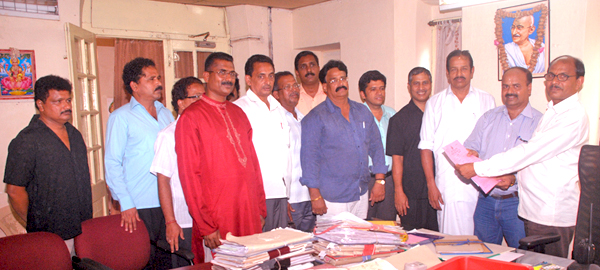
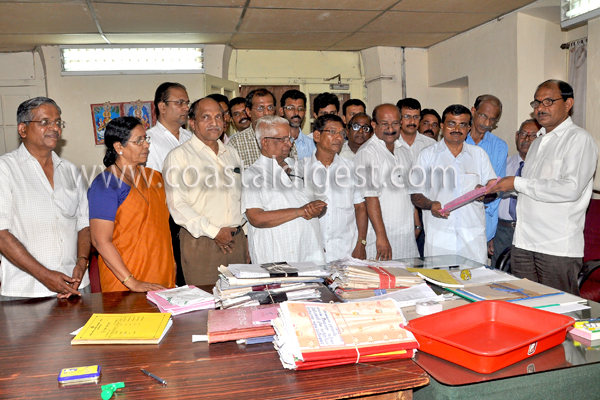
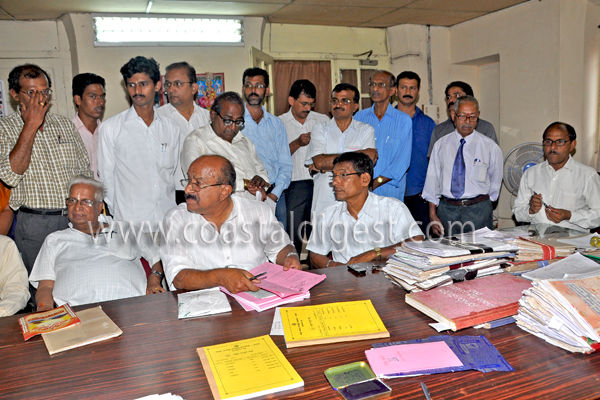
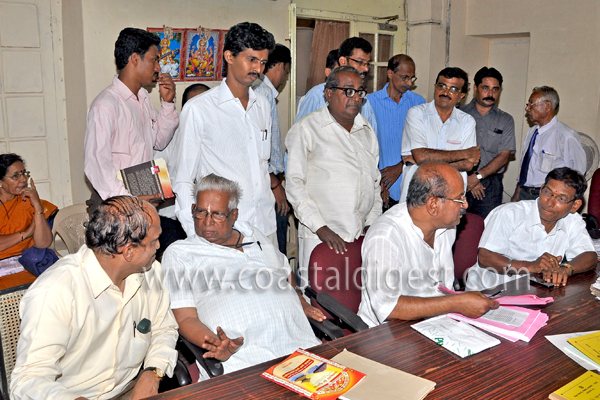





Comments
Add new comment